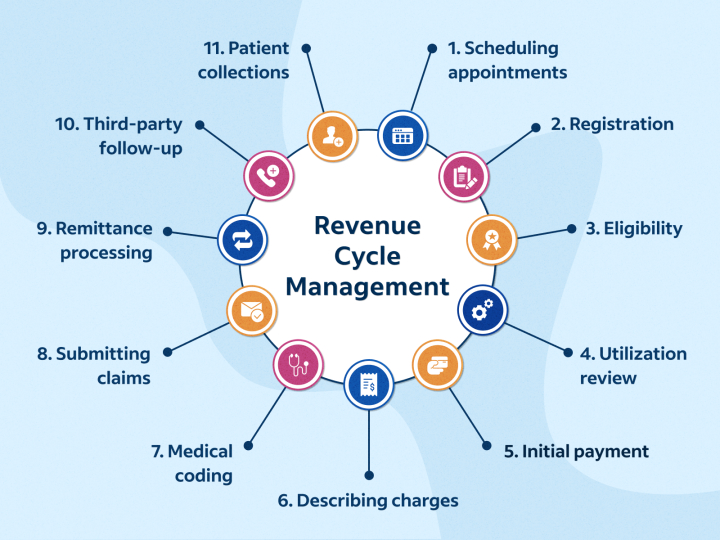How Automated RCM Drives Operational Efficiency in Healthcare

In the healthcare industry, managing the revenue cycle is a critical aspect of ensuring financial stability and operational efficiency. However, traditional manual processes can be time-consuming, error-prone, and resource-intensive. The advent of automated Revenue Cycle Management (RCM) solutions has revolutionized healthcare organizations by streamlining billing, coding, and reimbursement processes.
In this blog post, we will explore how automated RCM drives operational efficiency in healthcare, enabling organizations to optimize revenue, reduce costs, and improve patient care.
Key Benefits of Automated RCM
- Improved Efficiency: Automation streamlines RCM processes, reducing manual tasks and minimizing errors. This leads to faster turnaround times, reduced administrative costs, and increased productivity.
- Enhanced Accuracy: Automated systems can capture and process patient information more accurately, reducing the likelihood of billing errors and denials. This improves the overall accuracy of claims submissions and accelerates reimbursements.
- Improved Patient Satisfaction: Automated RCM can enhance the patient experience by reducing wait times, simplifying the billing process, and improving communication. This can lead to increased patient satisfaction and loyalty.
- Increased Revenue: By improving the accuracy and efficiency of claims submissions, automated RCM can help healthcare organizations increase their revenue. This can be achieved by reducing denials, accelerating reimbursements, and identifying revenue leakage opportunities.
- Enhanced Compliance: Automated RCM systems can help healthcare organizations comply with complex regulatory requirements, such as those related to HIPAA and coding guidelines. This can reduce the risk of penalties and fines.
Core Components of Automated RCM Systems
- Patient Registration: Automated systems can streamline patient registration processes by capturing demographic information, insurance details, and other relevant data.
- Eligibility Verification: Automated systems can verify patient insurance eligibility in real time, reducing the risk of denials and improving claim processing efficiency.
- Coding and Billing: Automated coding and billing systems can accurately assign codes to medical services and generate clean claims.
- Claims Submission: Automated systems can submit claims electronically to payers, reducing manual errors and accelerating the reimbursement process.
- Denial Management: Automated denial management systems can identify and address denials promptly, reducing the revenue cycle time and improving reimbursement rates.
Automated Revenue Cycle Management (RCM) solutions have transformed the healthcare industry by driving operational efficiency, optimizing revenue, and improving patient care.
As a leading software services company, MOD is committed to empowering healthcare organizations with innovative RCM solutions. Contact us today to learn more about our automated RCM solutions and how they can streamline your revenue cycle, reduce costs, and enhance operational efficiency.

